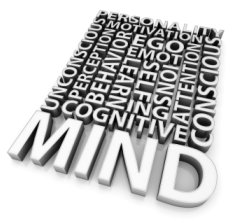Emotional decision making can improve decisions when managed as part of the process
 Research in the last few decades has started to look at emotional decision making with a new perspective. Instead of having only a rational vs. emotional perspective, work has taken a more complete view, recognizing positives as well as negative effects of emotions in the context of making decisions.
Research in the last few decades has started to look at emotional decision making with a new perspective. Instead of having only a rational vs. emotional perspective, work has taken a more complete view, recognizing positives as well as negative effects of emotions in the context of making decisions.
Prior decision making work in rational decision making focused on models that reduce or eliminate emotional bias. Advancements in technology, particularly in studying how our brains work, have made it possible to expand our understanding of how emotions influence our judgment and choice selection.
Are there positive effects of emotions in decision making?
 It turns out that the current environment of information overload will likely lead to a greater amount of emotional decision making. Human brain research has suggested that, as our minds have more to process, the likelihood to decide emotionally increases. It makes sense that less time for reflection will lead to more decisions that seem irrational. The good news for emotions is that they function to reduce and bound our reasoning which then creates the opportunity to reason more fully. If we can identify which decisions can be addressed emotionally, we generate the opportunity to make more complex decisions rationally.
It turns out that the current environment of information overload will likely lead to a greater amount of emotional decision making. Human brain research has suggested that, as our minds have more to process, the likelihood to decide emotionally increases. It makes sense that less time for reflection will lead to more decisions that seem irrational. The good news for emotions is that they function to reduce and bound our reasoning which then creates the opportunity to reason more fully. If we can identify which decisions can be addressed emotionally, we generate the opportunity to make more complex decisions rationally.
Emotion's other positives can include better decision efficiency, better employee engagement in the workplace, and enhanced creativity. Becoming aware of emotions has the benefit of correcting many emotional biases. Finding ways to minimize decision making driven by emotional bias while making better use of emotional intelligence can help use emotion to increase effectiveness in the workplace.
Emotions may be essential to decision making
 Dr. Antonio Damasio, a neurologist known for his work on the relationship between emotions and decision making, suggests that emotions may be fundamental to dealing with equal options and decisions that do not have a clear rational basis for choosing. In his 1994 book, Descartes' Error: Emotion, Reason, and the Human Brain, Damasio shows how patients with prefrontal cortical damage cannot create the emotions necessary for effective decision-making. In one example, his story of Elliot describes how, without emotion, he could not make simple choices, such as which color socks to wear. This suggests that at the point of selection, emotions may be key for choosing. Even when we believe they are rational decisions, the actual choice may in reality be based on emotion.
Dr. Antonio Damasio, a neurologist known for his work on the relationship between emotions and decision making, suggests that emotions may be fundamental to dealing with equal options and decisions that do not have a clear rational basis for choosing. In his 1994 book, Descartes' Error: Emotion, Reason, and the Human Brain, Damasio shows how patients with prefrontal cortical damage cannot create the emotions necessary for effective decision-making. In one example, his story of Elliot describes how, without emotion, he could not make simple choices, such as which color socks to wear. This suggests that at the point of selection, emotions may be key for choosing. Even when we believe they are rational decisions, the actual choice may in reality be based on emotion.
Studies of people with ventromedial injuries, the area of the brain active in emotions, revealed a distinct difference in response to questions that present a moral dilemma of saving many people at the expense of one innocent. This suggests an ongoing tension between the rational cost-benefit calculations and the instinctive emotional decision making parts of our mind, particularly for moral judgments.
Are there emotional decision making advantages?
Recent research has revealed a number of positive elements of emotions in decision making.
- A totally emotional decision is very fast in comparison to a rational decision. This is reactive (and largely subconscious) and can be useful when faced with immediate danger, or in decisions of minimal significance.
- Some studies suggest an emotional insistence to respect the life of another human being.
- Emotions may provide a way for coding and compacting experience, enabling fast response selection. This may point to why expert's "gut" level decisions have high accuracy rates.
- Emotions are possible signals from the subconscious that provide information about what we really choose.
- Decisions that start with logic may need emotions to enable the final selection, particularly when confronted with near equal options.
- Individuals care about the emotional features of decision options.
- Emotions often drive us in directions conflicting with self-interest.
Emotional decision making can also come with a number of negatives.
- We make quick decisions without knowing why, and then create rational reasons to justify a poor emotional decision.
- Intensity of emotions can override rational decision making in cases where it is clearly needed.
- Immediate and unrelated emotions can create mistakes by distorting and creating bias in judgments. In some cases this can lead to unexpected and reckless action.
- Projected emotions can lead to errors because people are subject to systemic inaccuracy about how they will feel in the future.
Decision making solutions must address emotional and rational elements of our being
If your mind is distracted with an overload of information, too many priorities and no time to debate, the likelihood that the emotional brain will overrule the rational one increases. Valuable decisions deserve analysis. Competition and risk is more complex, so the demands on decision making solutions have increased.
Recent research in the area of emotional decision making has begun to expose the value, benefits and difficulties that emotions present to the decision making process. Interdependence of emotional and rational processes is powerfully presented in recent neurobiological studies which establish that emotion is essential in rational decision making.
How to proceed in light of this new knowledge
Decision making solutions must work to increase the positive benefits of both rational and emotional thought processes while providing approaches to minimize and learn from mistakes. The flexible decision making model used by Decision Innovation enables improvements in decision making as we learn more about how our mind works.
Return from Emotional Decision Making to Decision Making Styles

